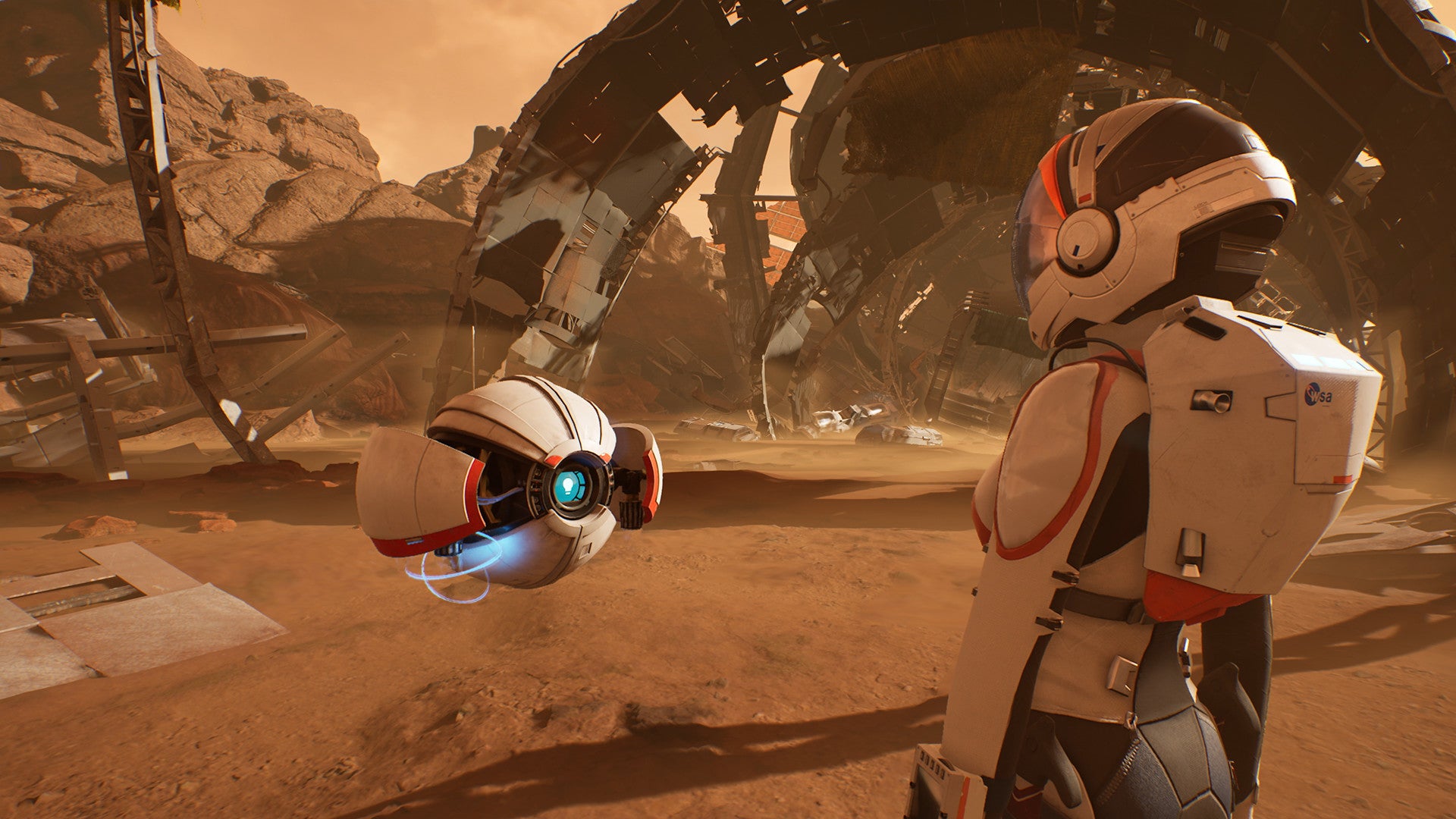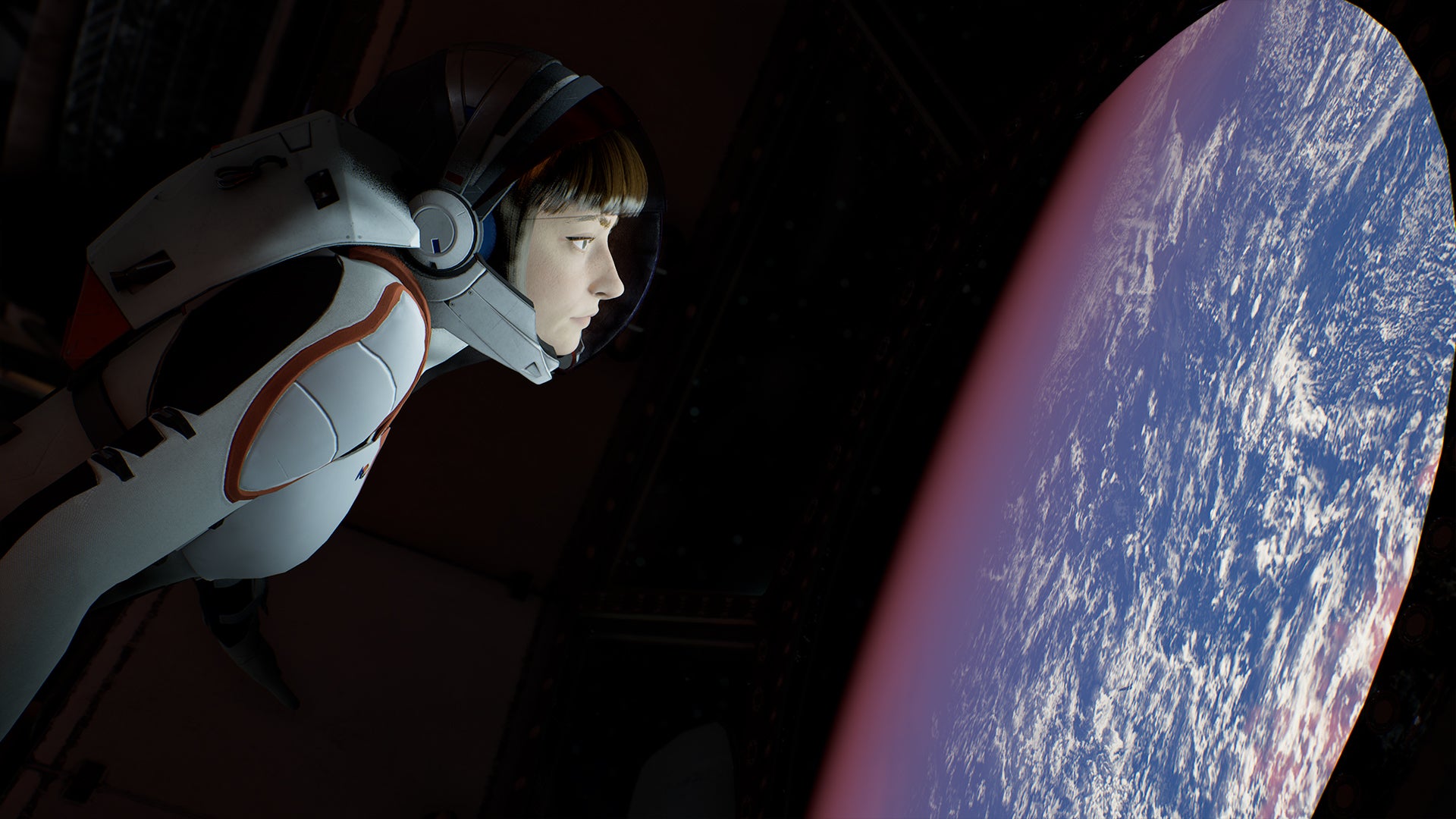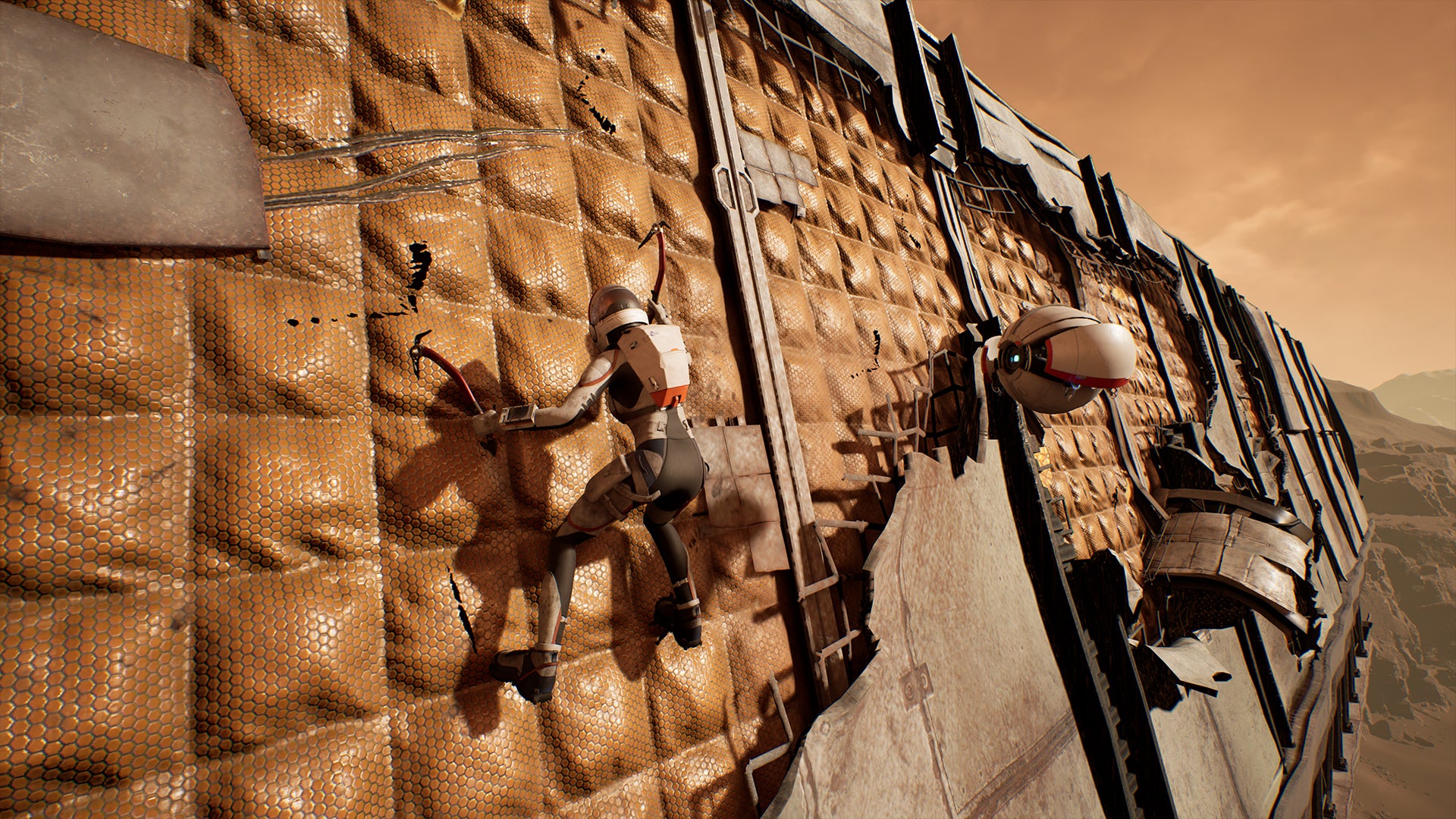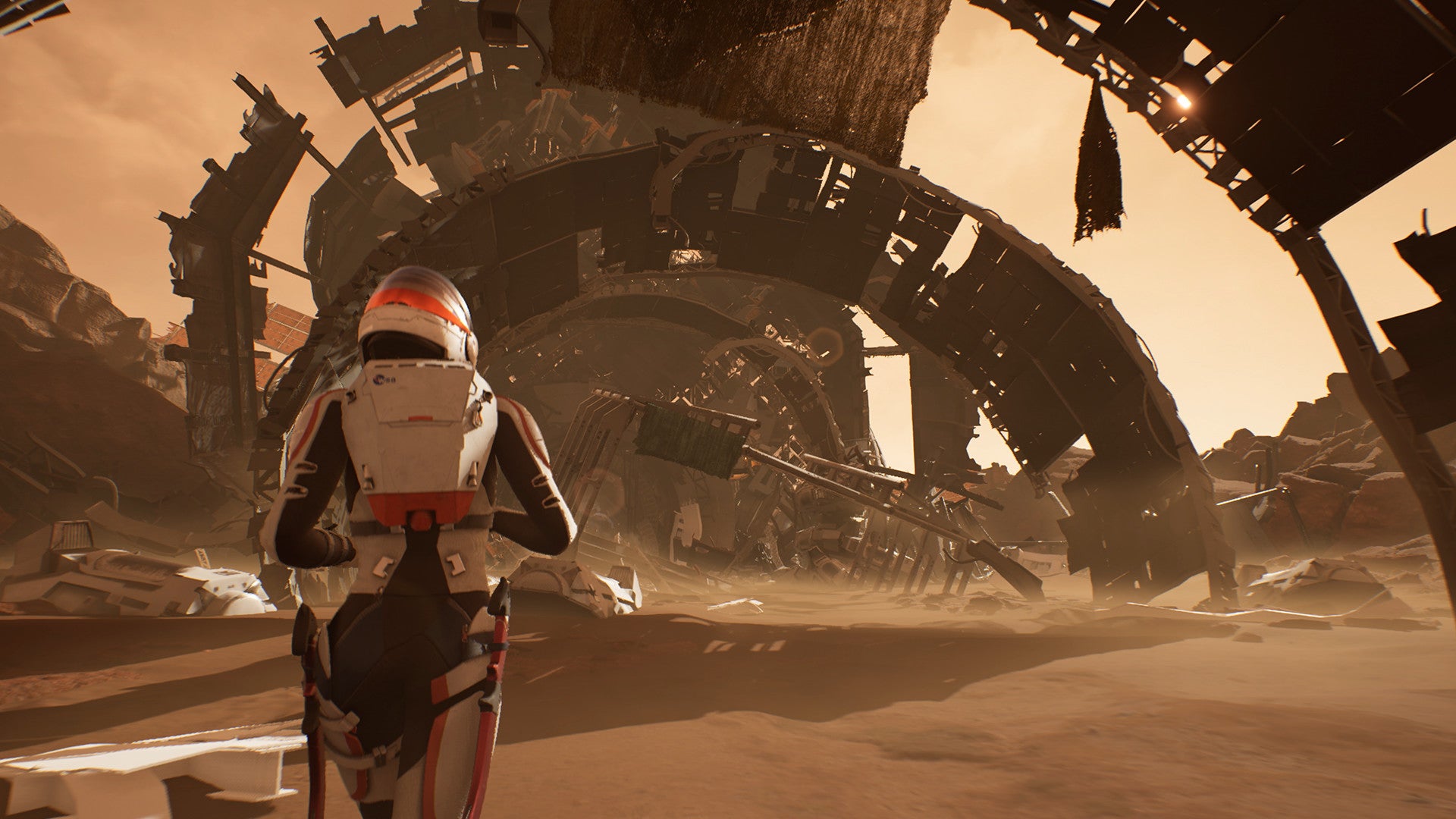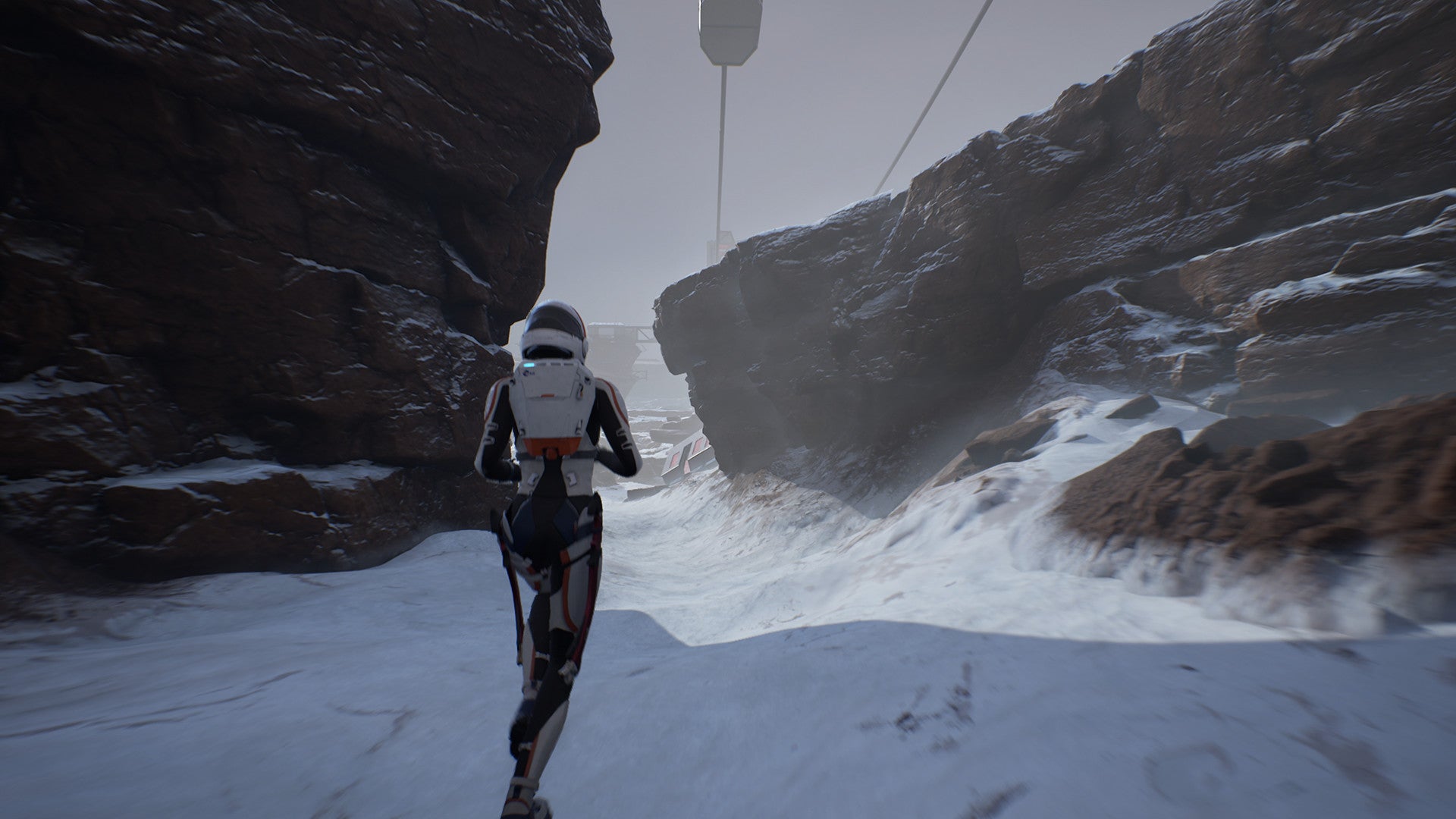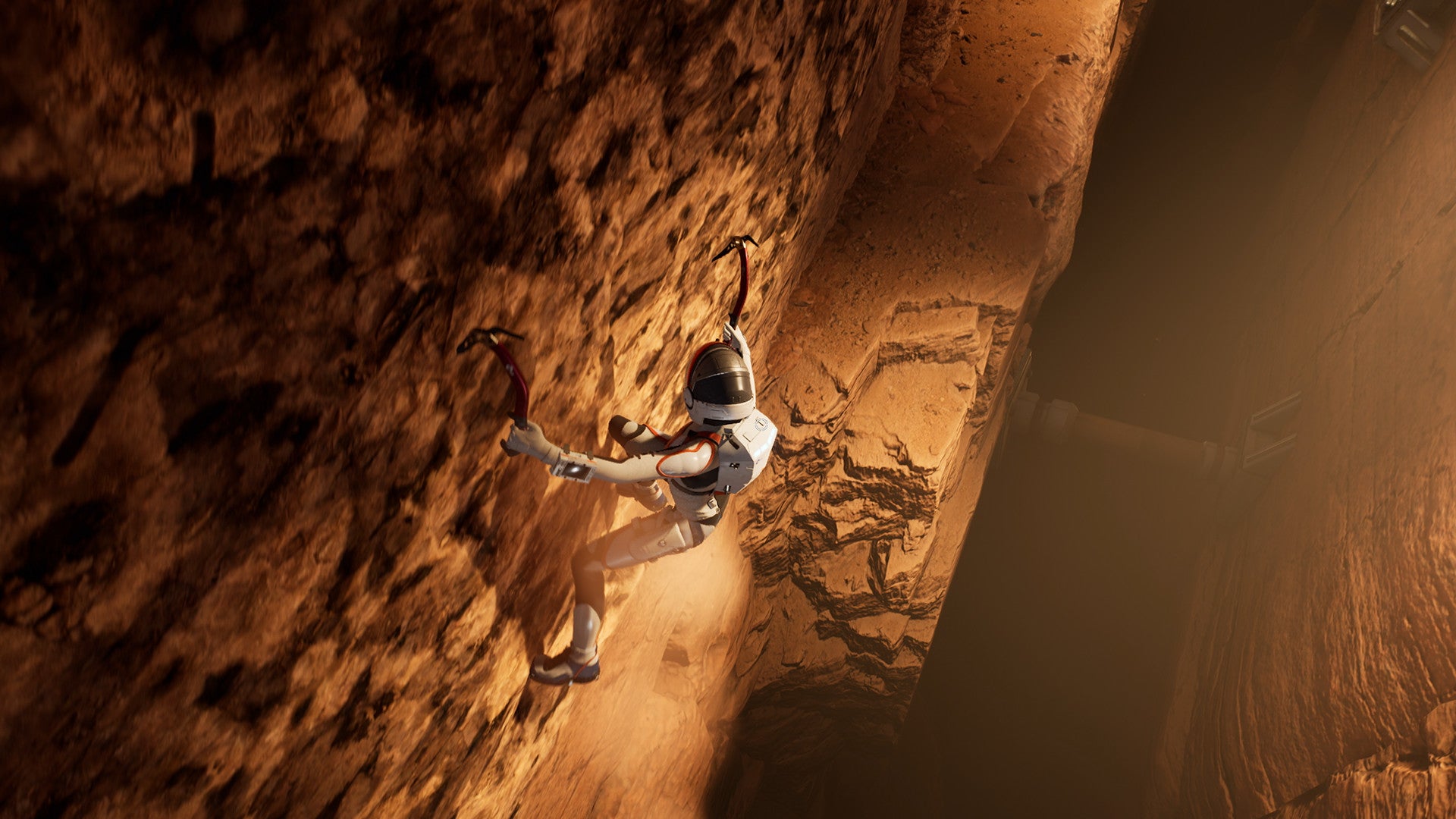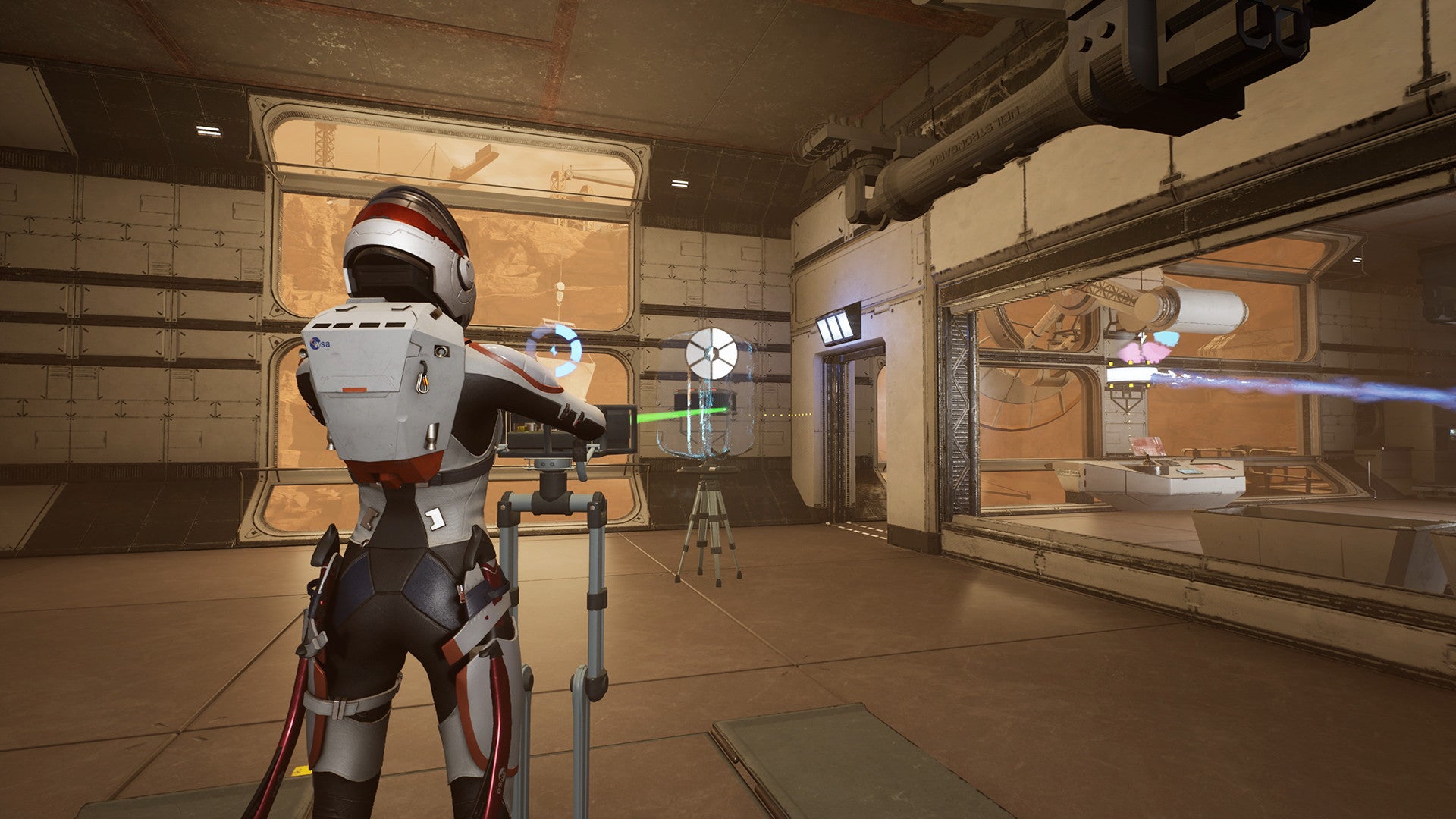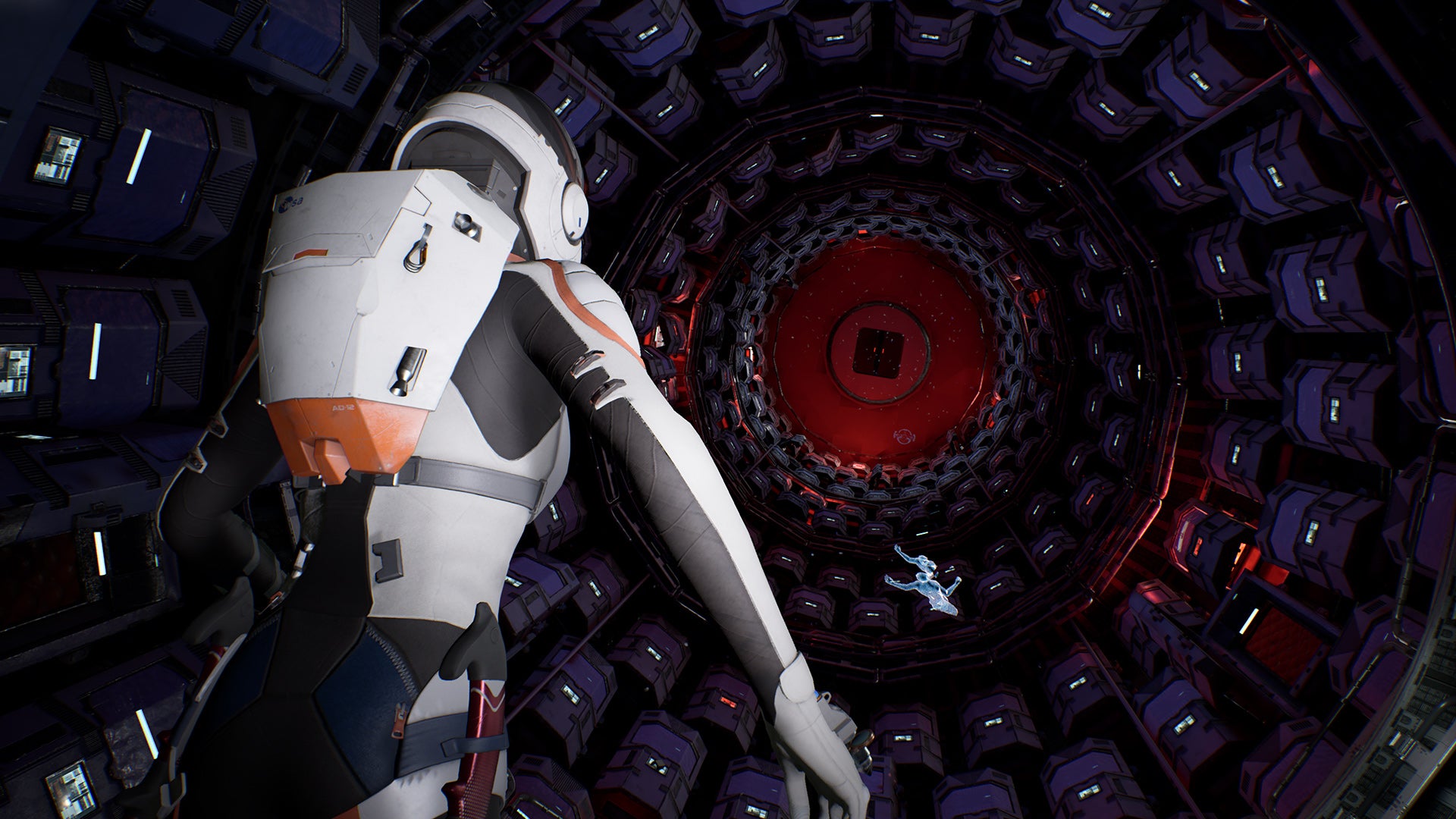“You have to bear in mind that Deliver Us The Moon was our debut into the games industry,” he tells me. “We’d envisioned multiple ways to make this the greatest game of all time, but to some extent you are bound by reality and what you can make within a budget and timeline, so some of these decisions were made out of necessity. That’s why the narrative and its scale has significantly risen with Deliver Us Mars – we’ve had the opportunity to give that side of the game a lot of more of our time and attention.”
As you may recall, Deliver Us The Moon saw you step into the shoes of a lone astronaut tasked with bringing the moon’s energy relays back online in order to save Earth from its ongoing energy crisis. Set in 2059 when our home planet is already a husk of its former self, Deliver Us The Moon was a story as much about climate change as it was exploring the depths of its abandoned moon colony. Now, Deliver Us Mars is continuing that story ten years later, putting you in the space boots of Kathy Johanson, the daughter of one of those former moon colonists and who’s now part of a team trying to save Earth once again from the brink of destruction. Only this time, its salvation lies on the Red Planet, with its lost Ark technology.
When I ask Deetman what it’s been like returning to the world of Deliver Us again, he says that, “Honestly, we were really happy to leave the greyness of it all behind! As much as we love our own celestial body, it is also kind of a dead rock. So the possibility of getting more ‘colour’ into the palette was a welcome change.”
He also tells me it was always KeokeN Interactive’s intention to make a sequel: “From the point where we founded the studio and the franchise, we’ve never seen [Deliver Us The Moon] as a one-off game – either when it comes to the story of the series, or when it comes to our evolution as a developer.” He acknowledges that it might seem “riskier” to go all-in on a single series, “but to us it represents a commitment to our players. The hope, too, is that each time you add a chapter to that story, you bring more players along for the ride. That’s part of the reason Deliver Us Mars can be enjoyed as both a standalone game and as a sequel.”
If you haven’t yet caught up on the events of Moon, Deetman teases they’ll have “a fun way” of recapping the events of the first game to set the scene, but stresses that Deliver Us Mars is ultimately about a lot of “hard subjects”, including climate change, the environment and humanity’s survival as a species. They’ll be exploring these topics through a more “personal lens” this time, though, centering on Kathy and her quest for her missing father - something that was immediately apparent all the way back when we first saw Deliver Us Mars at last year’s Gamescom.
This shift in perspective is also what’s prompted the game’s biggest technical transformation as well: the jump from first to third-person. “This game is about a family and their struggles amid a dangerous time for mankind,” says Deetman. “As such, giving players a fully-formed, talking protagonist like Kathy, not to mention other characters around her, makes much more sense.” As such, the team wanted to put Kathy front and centre, with Deetman saying they wanted to treat her “like they’re the Ferrari of our game.”
“We love the character design of Kathy, so we want players to be able to see her across the story wherever possible,” he says. “Still, we know first-person also lets you experience something more intimately, and more up close. So, we’ve translated that to the third-person perspective in this game,” citing the way Mars’ camera moves closer to or further away from Kathy depending on what she’s doing. For example, close quarters exploration will see the camera tighten up “so players feel like they’re looking around with her”, he says, while platforming sections will zoom out so you can keep track of Kathy’s feet and where she lands - something I found to be absolutely vital when I was scaling up the side of creaking space ships in my preview build at the end of last year.
Speaking of Kathy’s athletic climbing abilities, I asked Deetman whether their decision to take a more physical approach to Kathy’s movements was a direct reaction to the kind of safe, highlighted auto-climbing we often see in third-person action games like this. Compared to your Tomb Raiders and Uncharteds, I found moving each of Kathy’s arms and squeezing the right and left trigger buttons to sink in and hold her pick-axes in place to be altogether more exhilarating in the moment, and Deetman says that kind of reaction was exactly what the team were aiming for during development:
“Like its predecessor, [Deliver Us Mars] is not using any easy conflict/resolution mechanics like shooting 60 enemies to entertain or evoke natural pressure (not that we don’t enjoy those games too!),” he says. “So, we needed a gameplay mechanic that feels thrilling, something that not only ties into the story of exploring a relatively unknown environment like Mars, but something that excites you as a player and makes the stakes feel very high. Getting Kathy to hang off the side of a cliff with the pressure of not letting go is a great way to do that. The documentary ‘Free Solo’ really ignited the idea of that danger – and the feeling that this will be your last trip if you let go.”
I’ll most likely be taking that trip on my desktop come launch time, as I suspect playing it on my Steam Deck probably will make it my last one if I try and take Kathy’s rock-climbing on the go with me. The large size of Valve’s portable PC is an increasingly awkward fit for my tiny palm span when it comes to fast-paced action adventure games, but for those with larger digits, there is good news. Deetman tells me they are indeed aiming to get the game Steam Deck Verified by launch.
“The Steam Deck is a nifty piece of hardware,” he says. “Valve is doing a lot to make sure it’s accessible to the player, which is fantastic. It’s the power of the Deck itself that’s quite extraordinary, just as much as games are increasingly being tailored to it. Still, you must make sure you take into account its necessities to ensure the game performs effectively. It’s unique in a lot of ways – but a very exciting way to potentially experience a game like Deliver Us Mars.”
I’m sure Deliver Us Mars won’t be the only space game hoping to land in that coveted ‘Verified’ zone this year, and when I asked Deetman why so many developers were heading for the stars in 2023, he says that “with the rising modern interest in space travel, the trend towards more sci-fi games was somewhat inevitable.”
He adds that “we’re in an era where traveling to Mars is something that interested people spend a lot of time thinking about,” although for him and his brother (and fellow KeokeN co-founder) Paul it was their grandfather’s career as a telescope builder that really ignited their own love of the stars and outer space.
In some sense, it’s that shared family love of the great unknown that Deetman hopes will help set Deliver Us Mars apart from its interstellar rivals. “There’s a huge amount of drama and spectacle waiting for players when they leave Earth and journey to Mars,” he says. “You get that extraordinary audiovisual experience of being on a planet you’re unfamiliar with. But at the same time, this story about a family and climate change is very particular to our game, and it’s something we’re really proud of. That’s what makes us different and hopefully it will leave a meaningful mark on the player’s heart”.
Deliver Us Mars is out on February 2nd, and will be available from Steam and the Epic Games Store for £25/€30/$30.
